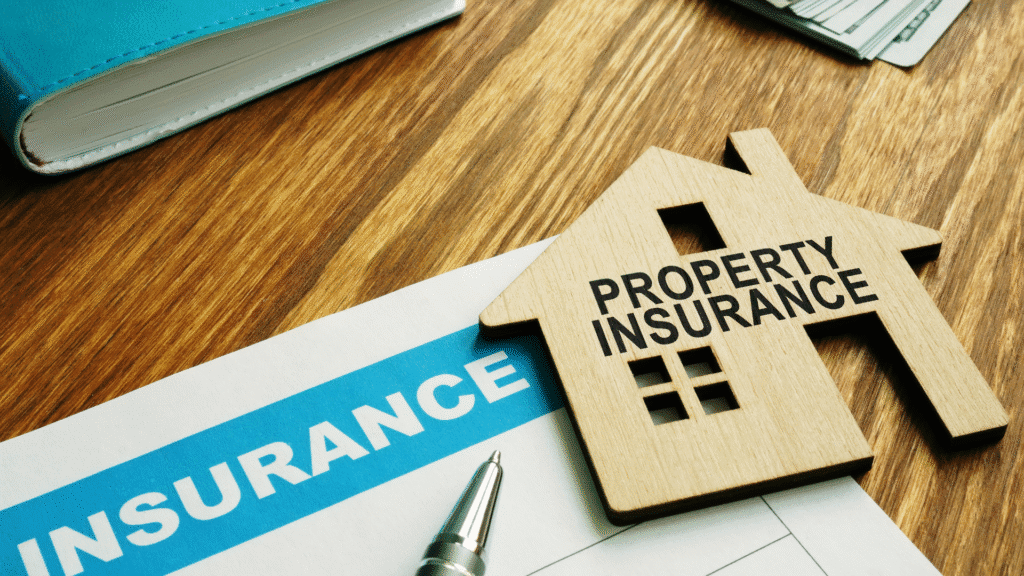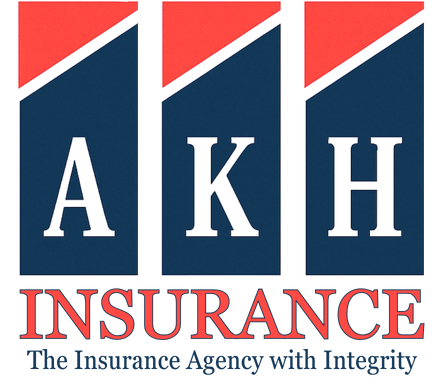Understanding Property Insurance: Types, Coverage, and Why It Matters

Whether you’re a homeowner, a landlord, or a business owner, protecting your property is essential. But with so many coverage options available, navigating the world of insurance can be overwhelming. This guide breaks down what property insurance is, the different types available, and how to choose the right coverage for your needs.
What Is Property Insurance?
Property insurance is a type of policy that offers financial reimbursement to the owner or renter of a structure and its contents in case of damage or theft. It generally covers damage caused by fire, smoke, wind, hail, storms, lightning, and other natural or man-made events.
This form of insurance is not limited to homes—it can apply to a wide variety of property types, including commercial buildings, rental units, and even land. The goal of property insurance is to ensure that if something unexpected happens, you’re not left with devastating financial losses.
To learn more about our available coverage options, visit our services page.
What Is Home Insurance?
While often used interchangeably with property insurance, home insurance (or homeowners insurance) is actually a specific type of property insurance tailored for residential properties. It typically covers:
- The structure of your home
- Detached structures (like garages and sheds)
- Personal belongings
- Liability for injuries or damages that occur on your property
- Additional living expenses if your home becomes uninhabitable
Homeowners insurance is a necessity for anyone who owns a home, especially if it’s financed through a mortgage. Without it, one natural disaster or fire could leave you without a roof over your head—and a significant financial burden.
Types of Property Insurance
Understanding the types of property insurance available can help you choose the policy that best suits your specific needs. Here are some of the most common types:
1. Homeowners Insurance
As mentioned earlier, this is designed for residential properties and protects against a range of risks. It typically includes:
- Dwelling coverage
- Personal property protection
- Liability coverage
- Loss of use
2. Renters Insurance
If you’re renting a home or apartment, renters insurance covers your personal belongings inside the rental unit. It also provides liability protection in case someone is injured while visiting you. However, it does not cover the structure itself—this is the landlord’s responsibility.
3. Landlord Insurance
Designed for property owners who lease out their buildings, landlord insurance covers the structure and may also offer liability protection. It typically doesn’t cover tenant belongings, but it can include loss of rental income and legal expenses.
4. Commercial Property Insurance
For businesses, commercial property insurance is vital. It covers:
- Buildings
- Equipment
- Inventory
- Furniture
This type of coverage helps keep businesses operational after a disaster. To explore additional protection for businesses, check out this resource on workers’ compensation insurance in Texas.
5. Flood Insurance
Standard property and homeowners insurance policies do not cover flood damage. If you live in a flood-prone area, this type of insurance is crucial and often required by mortgage lenders.
6. Earthquake Insurance
Like flood insurance, this is a separate policy or an endorsement to your existing coverage. It’s essential in areas prone to seismic activity.
7. Condo Insurance
Condominium insurance (or HO-6 policy) covers your unit’s interior and personal belongings. It also includes liability protection and living expenses if the unit becomes uninhabitable.
8. Mobile Home Insurance
This is tailored specifically for mobile or manufactured homes. It includes coverage for the structure, contents, and liability.
What Does Property Insurance Typically Cover?
Most property insurance policies include coverage for:
- Dwelling or building structure: Protects the building itself against damage.
- Other structures: Garages, sheds, fences, etc.
- Personal property: Furniture, electronics, clothing, and more.
- Loss of use: Covers additional living expenses if your property becomes uninhabitable.
- Liability: Protects against legal responsibility if someone is injured on your property.
- Medical payments to others: Covers minor medical expenses for guests injured on your property.
However, policies vary widely, so always read the fine print or consult an insurance professional.
What’s Not Covered?
While property insurance provides broad protection, certain risks may be excluded:
- Floods
- Earthquakes
- Intentional damage
- Wear and tear
- Pest infestations
- War or nuclear events
You may need to purchase additional policies or riders for these types of coverage.
How Much Property Insurance Do You Need?
Determining the right amount of coverage depends on several factors:
- Replacement cost of your property: Not market value, but the cost to rebuild.
- Value of your belongings
- Location and associated risks (e.g., flood zones, high-crime areas)
- Personal liability exposure
A professional insurance agent can help you assess your risk and determine the right coverage. Feel free to contact us if you’d like help evaluating your insurance needs.
Actual Cash Value vs. Replacement Cost
When selecting your policy, you’ll typically choose between:
- Actual Cash Value (ACV): Pays out the value of your property minus depreciation.
- Replacement Cost Value (RCV): Pays the amount needed to replace your property with new items of similar quality, without deducting for depreciation.
While ACV policies have lower premiums, RCV policies offer more comprehensive protection.
Why Property Insurance Is Essential
Here are a few reasons why property insurance is not just recommended—it’s critical:
- Protection from Financial Loss
A single fire or natural disaster can cause catastrophic damage. Insurance gives you peace of mind. - Mortgage Requirements
Lenders typically require homeowners insurance to protect their investment. - Liability Coverage
If someone is injured on your property, liability coverage protects you from legal and medical costs. - Business Continuity
For business owners, commercial property insurance helps you recover quickly and reduce downtime after an incident.
How to Choose the Right Property Insurance
Here are some steps to help you find the right policy:
- Assess Your Needs
Make an inventory of your property and assess the risks you face. - Compare Policies
Don’t go with the first offer. Get quotes and compare coverage, limits, and exclusions. - Check the Insurer’s Reputation
Look for companies with strong customer service, fast claim response times, and good financial health. - Understand the Fine Print
Know what’s covered, what’s not, and what your deductibles and limits are.
Final Thoughts
Property insurance is a cornerstone of financial protection. Whether you’re safeguarding your home, business, or rental property, having the right coverage can make all the difference when disaster strikes.
Understanding what is property insurance, exploring the types of property insurance, and knowing what is home insurance ensures that you make informed decisions about your coverage. If you’re unsure where to begin or want to review your current policy, contact us—we’re here to help.
